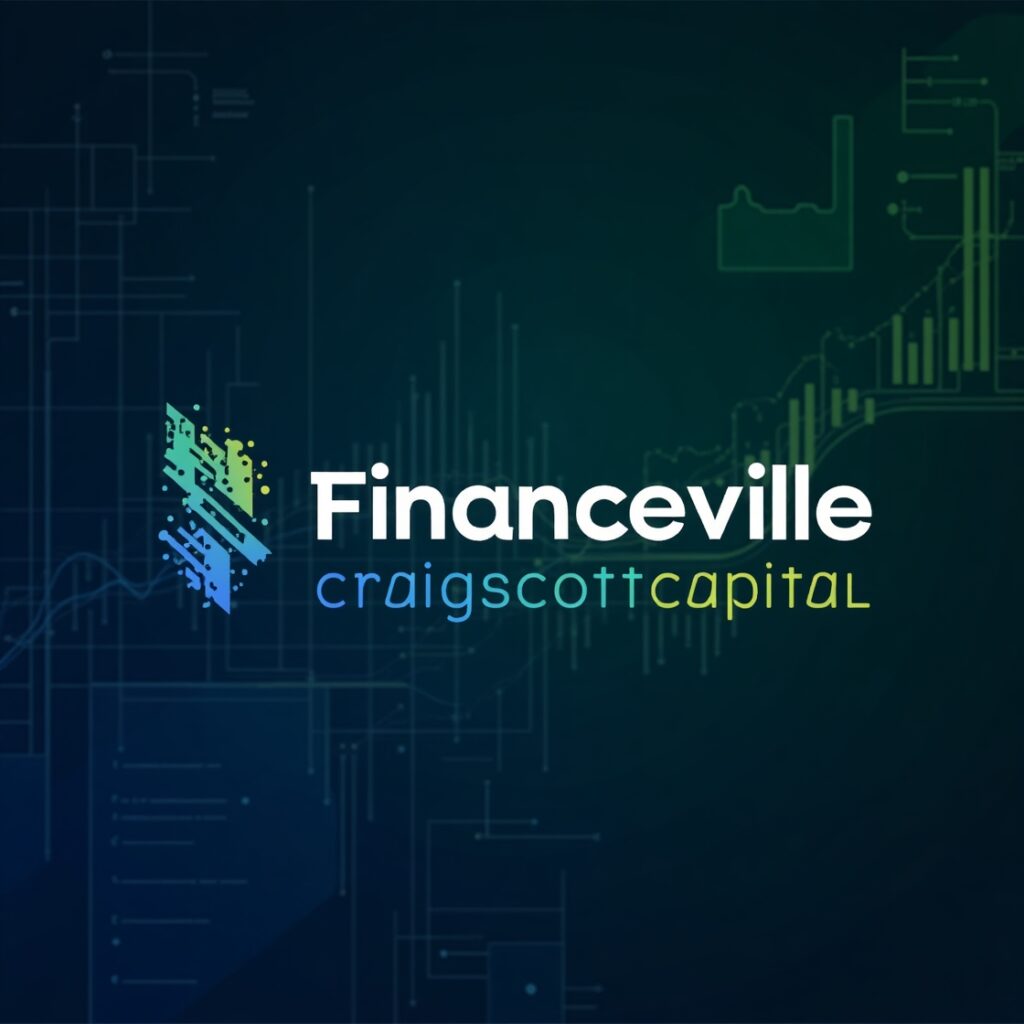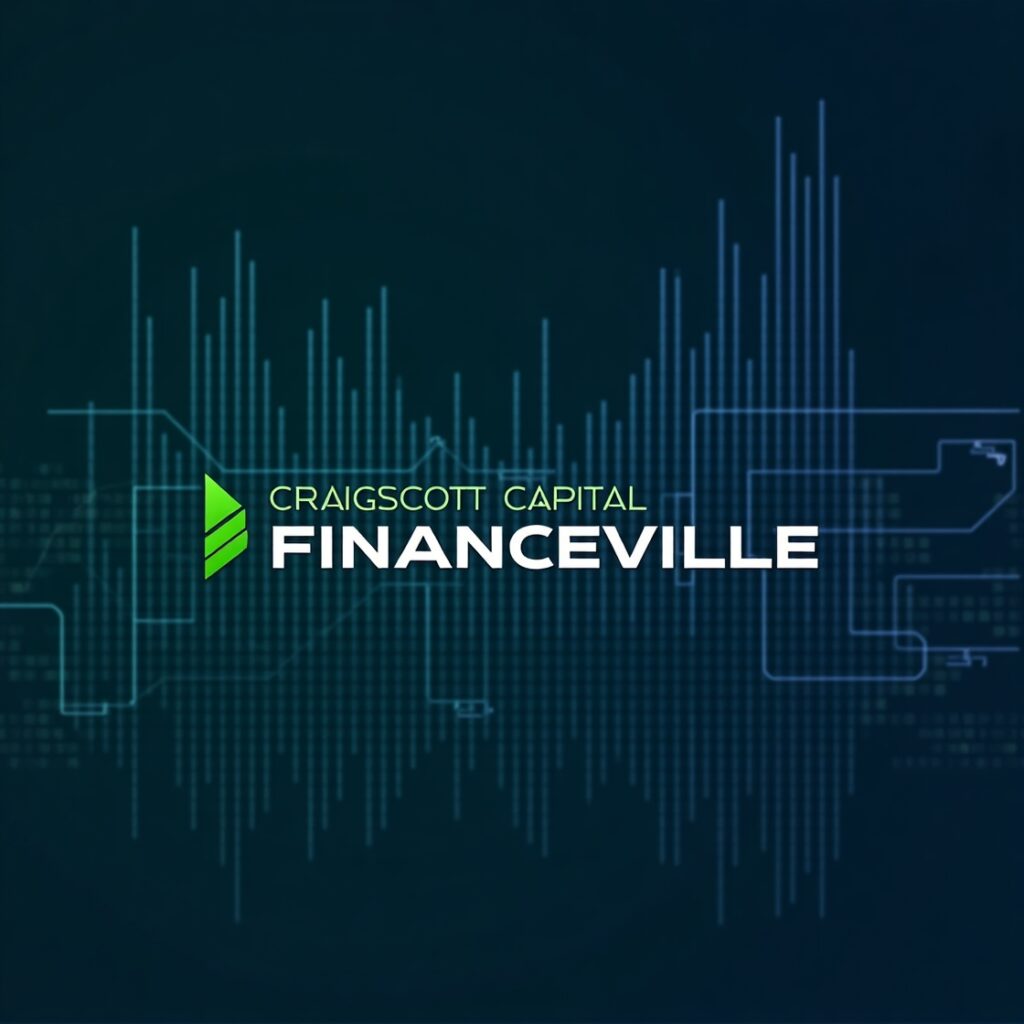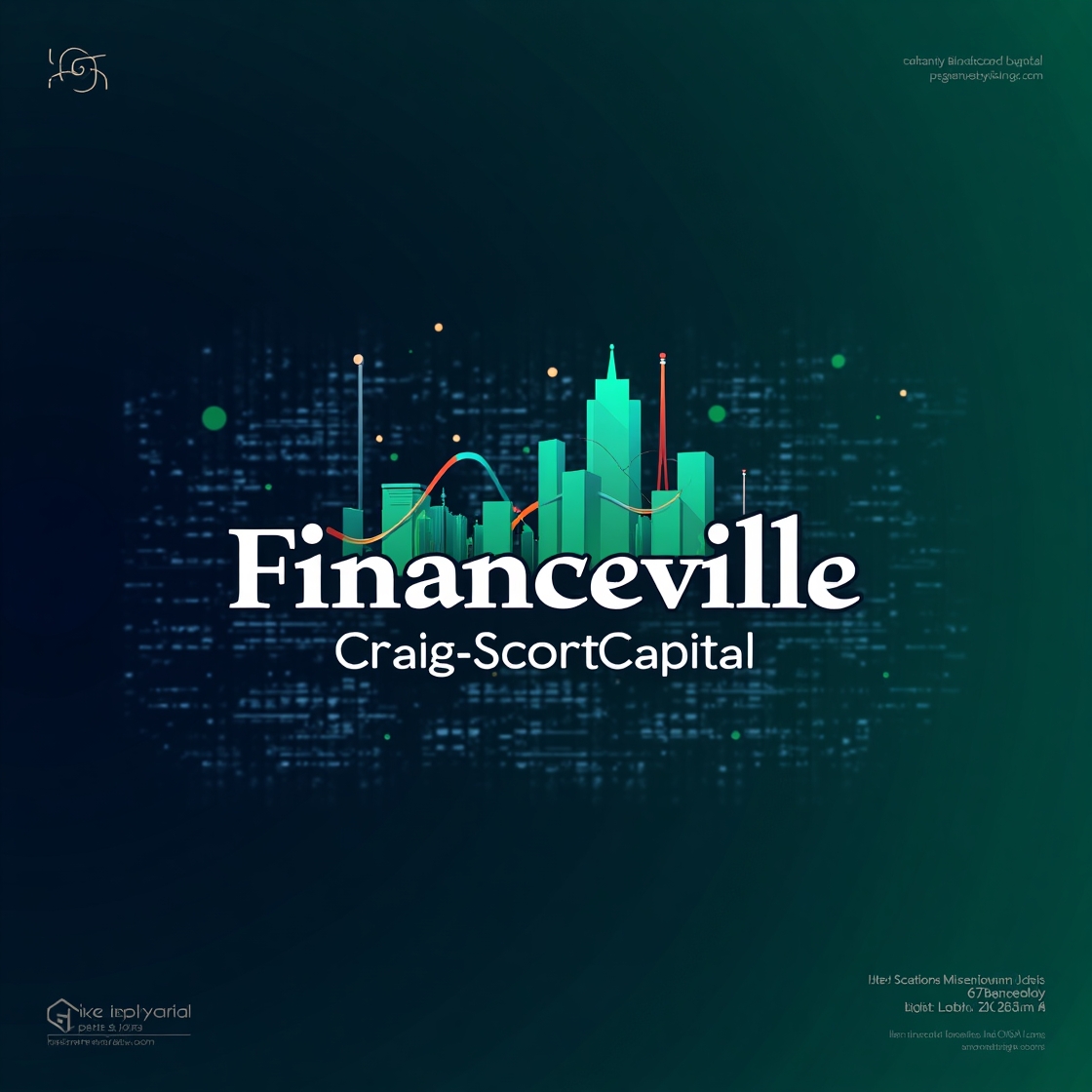Making informed investment choices requires more than just monetary literacy—it needs accept as true with in the institutions handling your money. Among the names which have drawn attention within the economic services world is Craig Scott Capital, a organization once known for its bold and assertive funding techniques.
However, over the years, this corporation has observed itself beneath elevated scrutiny. Regulatory tendencies and industry conversations have precipitated concerns about its commercial enterprise practices and universal credibility. These shifts have led ability traders to ask an vital question: Is Craig Scott Capital a sincere choice?
In this newsletter, we provide a clear and objective assessment of Craig Scott Capital’s historical past. We’ll explore its operational records, outline the key regulatory challenges it has confronted, and study what those factors imply for nowadays’s buyers. Our aim is to supply a honest and balanced perspective—unfastened from bias—in order that readers can make nicely-knowledgeable financial choices based on facts, not assumptions.
Understanding Financeville CraigScottCapital: What Really Happened?
Financeville CraigScottCapital became once a monetary services firm that promised to assist people develop their wealth via investments, specially within the inventory marketplace. Operating as a dealer-provider, the company employed licensed specialists who guided clients on buying and selling securities. While the company in the beginning aimed to offer sound funding advice and help, its recognition took a serious hit due to violations of economic enterprise policies. Eventually, these troubles brought about its closure.
In this newsletter, we’ll damage down what Financeville CraigScottCapital became, how it labored, what went incorrect, and why its tale matters to buyers these days. Our aim is to provide clean, correct, and honest statistics suitable for readers of all tiers of monetary knowledge.
The Origins of Financeville CraigScottCapital
Financeville CraigScottCapital lines its roots back to Craig Scott Capital, a U.S.-primarily based brokerage firm founded round 2010. The enterprise provided funding offerings and supplied economic recommendation to people trying to grow their portfolios.
The experts hired at the company were known as brokers or monetary advisors. Their process changed into to guide customers by recommending stocks and different investment products, supporting them make selections that aligned with their economic desires.
What Services Did the Company Offer?
At its core, CraigScottCapital functioned as a intermediary between buyers and the inventory marketplace. It aimed to help customers earn returns on their cash by way of providing professional insights into which assets to buy or promote. Services included:
- Personalized funding advice
- Brokerage services for stock buying and selling
- Portfolio management suggestions
Initially, many investors noticed the organization as a valuable ally in navigating complicated financial markets.
What Went Wrong?
Despite its promising beginnings, CraigScottCapital commenced to stand severe troubles associated with unethical practices. The maximum great subject worried some thing referred to as “churning”—a deceptive practice where agents make excessive trades in a patron’s account. The goal of churning isn’t to gain the customer, but to generate better commissions for the dealer.
Here’s why this is a problem:
- It violates enterprise policies
- It can drain a purchaser’s account because of unnecessary costs
- It breaks the believe between dealer and investor
These moves drew interest from regulatory authorities, especially the Financial Industry Regulatory Authority (FINRA), which oversees brokers and brokerage corporations within the United States.
Regulatory Action and Shutdown
As proceedings piled up, regulators commenced investigating CraigScottCapital’s commercial enterprise practices. Multiple findings found out that a number of the firm’s agents prioritized non-public profits over customer nicely-being, without delay violating moral and criminal requirements.
In reaction, FINRA and different regulatory bodies imposed disciplinary movements in opposition to both the corporation and numerous of its man or woman brokers. These included fines, license suspensions, and in the end, the revocation of the corporation’s potential to function.
Ultimately, CraigScottCapital was close down, and its call have become a cautionary tale inside the economic enterprise.
See Also : Whatutalkingboutwillis Blog: Your Go-To Hub for Lifestyle
Applying the Core Principles of Financeville and Craig Scott Capital in Everyday Life

Now that we’ve explored the background and lessons from Financeville and Craig Scott Capital, the following step is understanding how you can follow these economic principles for your day by day recurring. Whether you’re dealing with a small allowance or planning lengthy-time period financial savings, these foundational ideas will let you construct robust economic behavior from a young age.
Here’s how to placed these standards into motion:
1. Create a Simple Budget That Works for You
A price range is a strategy that enables prudent financial management. Start by means of writing down how an awful lot cash you get hold of (along with items, allowance, or profits), after which list where you spend it—on snacks, games, or hobbies. The goal is to spend less than you earn, so that you continually have money left over for financial savings or destiny wishes.
Tip: Try the usage of a notebook or budgeting app to music your spending habits every week.
2. Make Saving a Regular Habit
Saving cash isn’t only for adults—youngsters and young adults can start too. As a general rule, you should set aside at least 10% of any currency you get. Over time, this provides up and allows you put together for larger desires like shopping for a brand new device, a bicycle, or maybe building an emergency fund.
Safe alternatives: Use a piggy financial institution at home or ask your mother and father to help you open a economic savings account at a neighborhood bank.
3. Learn the Basics of Investing Early
Although investing would possibly sound complicated, it’s a exquisite talent to learn, even at a young age. Investing truely approach putting your money into some thing which could develop in fee over the years—like organisation shares, financial savings bonds, or collectibles.
Start small: Ask a figure, trainer, or mother or father to explain how the stock market works or watch movies on novice making an investment together.
4. Think Before You Spend: Avoid Impulse Buying
Impulse buying is when you spend money on something proper away without questioning it thru. One smart dependancy is the “24-hour rule”—wait a day before buying something non-vital. This offers you time to consider whether it’s genuinely well worth it.
Ask your self: “Do I want this, or do I just need it proper now?”
5. Set Meaningful Financial Goals
Setting a aim makes saving and spending more useful. It can be something a laugh, like a brand new video game, or something beneficiant, like donating to a purpose you care about. When you understand why you’re saving, it becomes easier to live influenced.
Break it down: Set short-term desires (like saving $5 per week) and lengthy-time period ones (like saving $100 in some months).
A Simple Example of Smart Money Management
Let’s put these standards right into a real-international scenario.
Imagine You Receive $20 as a Birthday Gift:
Here’s how you may use that money wisely, based totally at the ideas promoted by way of Financeville and Craig Scott Capital:
- Save $10 – Place it in a financial savings jar or financial institution account for a future aim (e.G., a new bicycle or emergency fund).
- Invest $5 – Buy something that can growth in value through the years, together with a collectible or even contribute to a own family financial savings bond.
- Spend $5 – Enjoy a small treat, like a favorite snack, e-book, or toy.
This balanced technique teaches monetary field—you’re now not simply spending cash, but planning, saving, and growing it as nicely. Over time, those conduct can construct a sturdy foundation for monetary independence.
Examine Client Testimonials and Case Studies

Before committing to any economic corporation or advisory service, make an effort to investigate its track file thru validated customer remarks. Independent opinions, case histories, and real testimonials can provide a clearer photo of the way the firm operates past the floor of marketing claims. Pay interest to recurring issues—whether nice or terrible—as they regularly spotlight the consistency (or inconsistency) of carrier quality, transparency, and customer delight.
Look for evaluations on 1/3-birthday celebration structures or industry watchdog net websites to make sure the comments is credible and impartial.
Seek Guidance from Qualified Professionals
If something in a proposal seems puzzling, overly aggressive, or definitely doesn’t take a seat right with you, it’s smart to visit an authorized economic guide, prison professional, or regulatory representative.
These experts can provide goal, personalized insights to help you recognize the risks, implications, and legality of what you’re considering.
A second opinion may be the distinction among making a valid investment and falling right into a expensive lure.
MCQs:
1. What type of company was Financeville CraigScottCapital?
A) Insurance firm
B) Real estate agency
C) Broker-dealer financial services firm
D) Technology startup
Correct Answer: C) Broker-dealer financial services firm
2. What was the primary unethical practice that led to the downfall of Craig Scott Capital?
A) Money laundering
B) Churning
C) Insider trading
D) Tax evasion
Correct Answer: B) Churning
3. Which regulatory authority investigated CraigScottCapital’s practices?
A) SEC
B) IRS
C) FINRA
D) FDIC
Correct Answer: C) FINRA
4. What year was Craig Scott Capital founded?
A) 2000
B) 2010
C) 2015
D) 2020
Correct Answer: B) 2010
5. Which of the following is NOT a recommended financial habit mentioned in the article?
A) Budgeting
B) Impulse buying
C) Saving regularly
D) Setting financial goals
Correct Answer: B) Impulse buying
6. According to the article, what percentage of your money should you try to save?
A) 5%
B) 10%
C) 20%
D) 50%
Correct Answer: B) 10%
7. What does the “24-hour rule” refer to?
A) Saving money for 24 hours
B) Waiting a day before making a non-essential purchase
C) Investing for one full day
D) Trading only within market hours
Correct Answer: B) Waiting a day before making a non-essential purchase
8. What is the purpose of seeking guidance from licensed professionals?
A) To guarantee high profits
B) To reduce taxes
C) To understand the legality and risks of investment decisions
D) To avoid paying fees
Correct Answer: C) To understand the legality and risks of investment decisions
9. Which of the following does not appear on the list of financial activities that Financeville principles advocated?
A) Investing in collectibles
B) Donating to charity
C) Gambling
D) Saving for a goal
Correct Answer: C) Gambling
10. What’s one way to evaluate a financial firm before doing business with them?
A) Visit their office
B) Review their advertising
C) Read independent client testimonials and case studies
D) Rely on social media posts
Correct Answer: C) Read independent client testimonials and case studies
Summary of the Article on Financeville CraigScottCapital:
Financeville CraigScottCapital grow to be a U.S.-based supplier-dealer firm set up round 2010, recognized first of all for its bold investment strategies and customized monetary services. The organization furnished brokerage services, portfolio advice, and investment guidance. However, it later came beneath excessive regulatory scrutiny due to unethical practices—particularly churning, in which agents made immoderate trades to earn commissions at the customer’s price.
Investigations thru FINRA (Financial Industry Regulatory Authority) found out that numerous of the business enterprise’s dealers violated financial suggestions, prioritizing personal advantage over consumer hobbies. As a quit result, disciplinary actions have been taken, which include fines, suspensions, and the eventual shutdown of the company.
The article also outlines economic literacy commands inspired by using the usage of the corporation’s rise and fall, emphasizing the significance of budgeting, saving often, investing early, warding off impulsive purchases, and putting enormous monetary goals. Additionally, it encourages readers to research financial corporations very well via established reviews and to are seeking for recommendation from certified professionals in advance than making sizable funding decisions.
Overall, the issue serves as each a cautionary story and a guide to developing strong economic conduct.
Read More About Trending At Centomagzine

